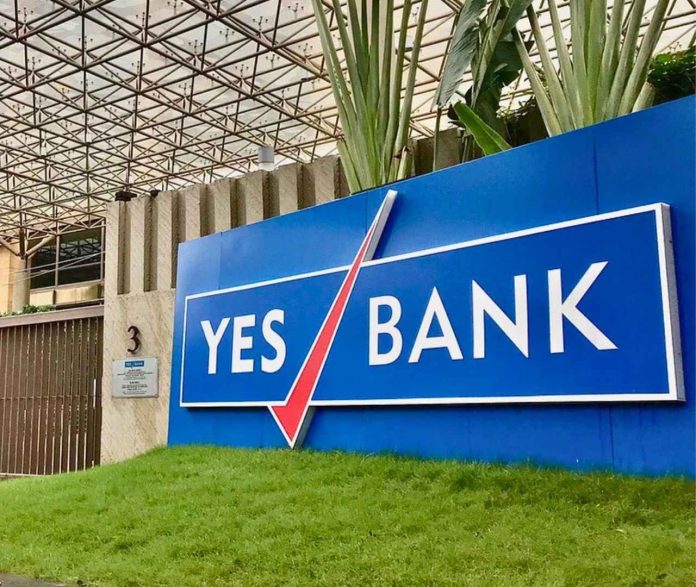📌 Introduction: The Making of a Mega Deal
India’s financial landscape is on the verge of a tectonic shift. According to reports from reputable sources including Moneycontrol and LiveMint, Japan’s banking giant, Sumitomo Mitsui Banking Corporation (SMBC), is in advanced negotiations to acquire up to 51% stake in Yes Bank, one of India’s major private-sector banks.
This proposed acquisition represents one of the largest foreign investments in Indian banking history, and if finalized, could significantly alter the structure, valuation, and competitive dynamics of the sector.
🧾 Background: The Journey of Yes Bank
Founded in 2004 by Rana Kapoor and Ashok Kapur, Yes Bank started with a vision to be India’s next-generation private sector bank. Over the years, it gained substantial market share, focusing on corporate lending and retail banking.
However, a combination of aggressive lending, corporate governance lapses, and high NPAs caused a liquidity crisis in 2020. This prompted a bailout led by the Reserve Bank of India (RBI) and State Bank of India (SBI), along with other financial institutions.
Today, with the bank stabilized and posting profits again, the stage seems set for a foreign strategic partner to take control.
🤝 What the Deal Entails: Structure and Stake
- SMBC plans to acquire a 51% controlling stake in Yes Bank.
- The acquisition would require approvals from RBI, SEBI, and CCI.
- SBI, currently the largest stakeholder, is expected to divest a major portion of its stake.
- Estimated deal value: ₹20,000–₹25,000 crore.
💡 Why SMBC is Interested in Yes Bank
- Expanding Indian Presence: SMBC gets direct access to India’s growing retail and SME market.
- India’s Growth Potential: India’s banking penetration and digital adoption offer long-term opportunities.
- Synergy with Fullerton India: SMBC can integrate Fullerton’s NBFC services with Yes Bank’s infrastructure.
📊 Market Reaction: Share Price, Investor Sentiment
After the announcement, Yes Bank stock surged by over 10%. Investors responded positively due to:
- Credibility and capital infusion by SMBC
- Potential improvement in asset quality
- Expected increase in lending capacity
🧑⚖️ Regulatory Landscape: RBI’s Role and FDI Rules
Key regulations to consider:
- FDI cap in private banks is 74%
- Voting rights capped at 26% for foreign investors
- Special approval needed for higher governance control
This deal could pave the way for new RBI policies on strategic foreign acquisitions.
🔍 Analysis: What This Means for the Indian Banking Sector
- Yes Bank Revival: Strengthened brand and digital offerings
- Boost to FDI: Encourages more global investments
- Market Competition: Likely to intensify, especially in urban markets
💬 Expert Opinions
Rajnish Kumar, former SBI Chairman: “If SMBC completes this deal, it will mark a transformative moment for Indian banking.”
Aditya Puri, former HDFC Bank CEO: “This signals strong global confidence in the Indian financial system.”
🧭 What’s Next?
- Official announcement from SMBC and Yes Bank
- Regulatory filings and due diligence
- Shareholder meetings and board restructuring
📱 What Customers Should Know
There are no immediate changes in services. However, expect:
- Enhanced digital banking
- New credit products and partnerships
- Potential co-branding with SMBC
📈 Economic and Policy Implications
- Likely re-evaluation of voting right caps
- May inspire policy liberalization in BFSI sector
- Boosts investor confidence in India’s banking system
🌍 Global Context
SMBC’s acquisition will be the first by a Japanese bank of an Indian lender. It follows:
- DBS Group’s merger with Lakshmi Vilas Bank in 2020
- Past Indian operations by Citibank and HSBC (limited to corporate services)
🏁 Conclusion
This potential acquisition could redefine the Indian banking sector, demonstrating a shift in global investor sentiment toward India. For Yes Bank, it marks a new chapter of international integration, growth, and transformation. For the economy, it proves India is no longer just a market—it is a partner in global finance.
Stay updated with TalesXP for the latest financial and banking news!































